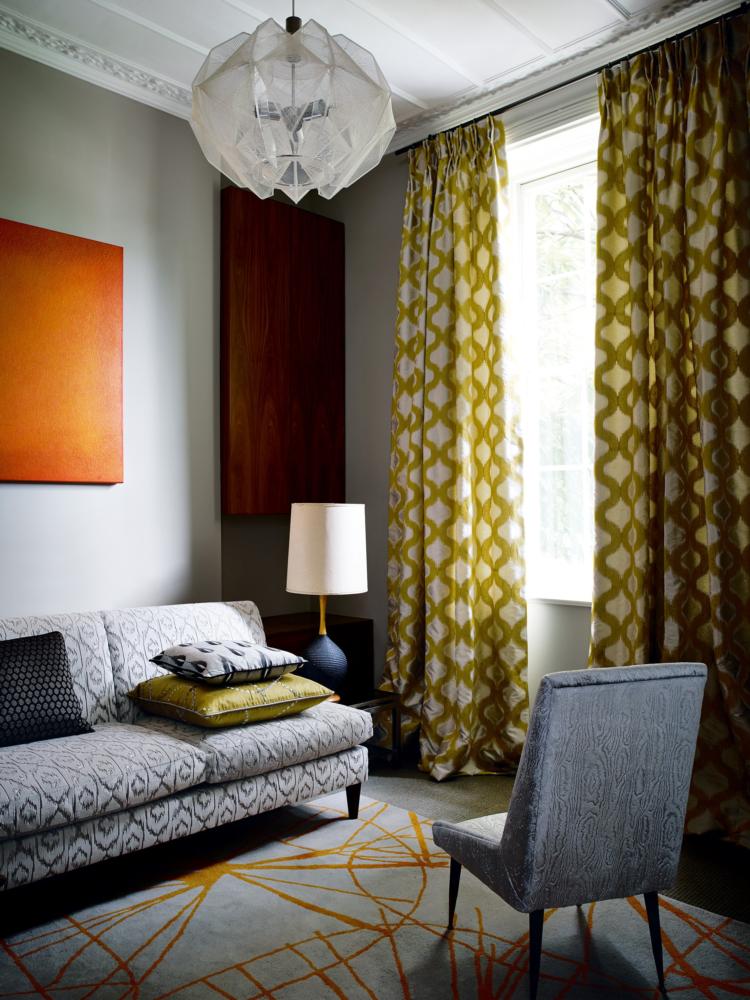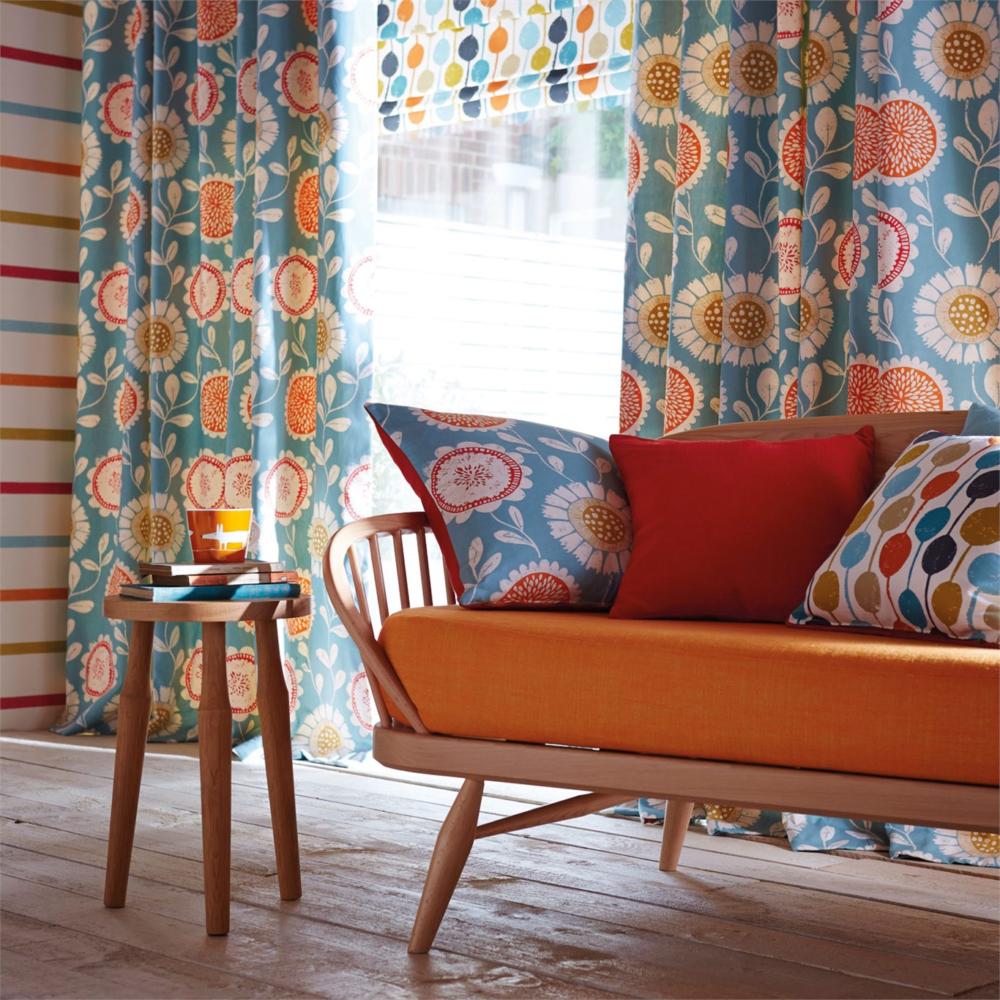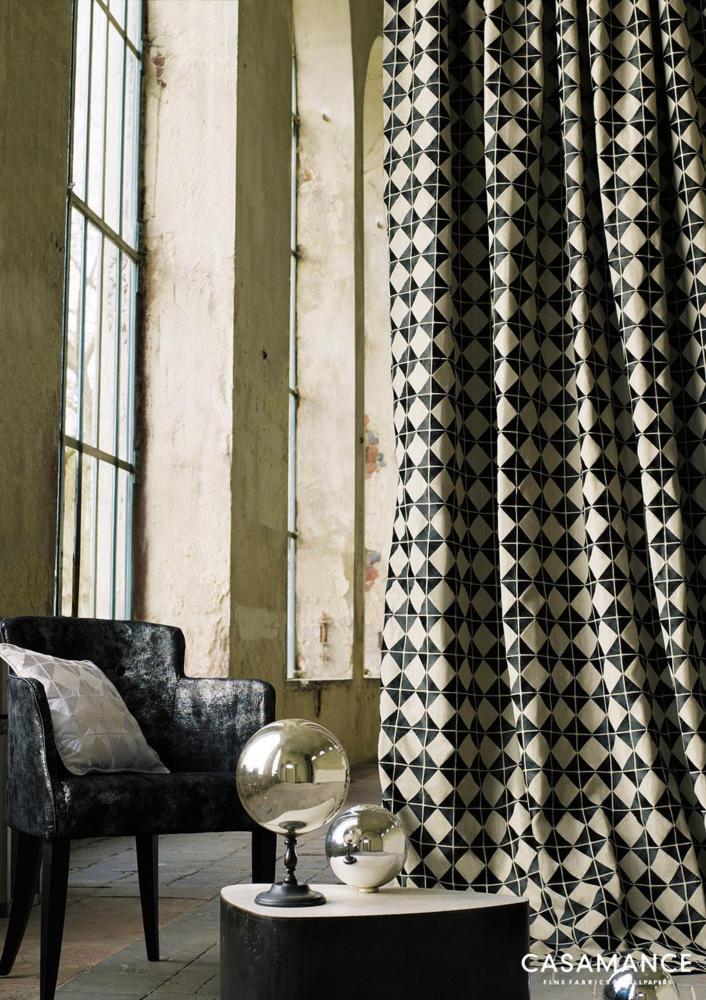Выбрать ткань, расцветку и фасон — вопросы important, but many people usually cope with them on their own. But there is often a problem with the amount of fabric. Especially for you, we have prepared an article on the correct calculation of fabric consumption. Let's imagine that our interior is already ready and all that remains is to hang the curtains. Even the cornices are already installed! Interior designer Olga Filimonova will tell you what and how to do now. Related articles Olga Filimonova, interior designer Founder and permanent director of the textile design studio "KorfilDecor". Graduated from the Moscow Textile Institute, Faculty of Applied Arts, specializing in "fashion designer". She lived in Prague for twelve years, mastered several related creative professions, such as a gallery owner, graphic artist and designer-decorator. - To calculate classic, long curtains, we need only two measurements. The height of the future curtain from the cornice to the floor and the width of the curtain, in finished form equal to the length of the cornice. First, let's calculate the amount of tulle. Manufacturers usually offer a tulle width of 280-300 cm, which easily fits into a standard ceiling height (no more than 3 meters). Then you just need to multiply the length of the tulle by the assembly coefficient. If the tulle is thin and very transparent, then I usually take the assembly coefficient from the calculation, which means that with a cornice length of 2 meters, the amount of tulle will be 6 meters. The effect of gentle, airy drapery is obtained. If we take thin linen or not very transparent tulle with texture or ornament, then the drapery coefficient will be much less - 1: 2.5 or even 1: 2. Curtain fabrics usually have a width of 1.4, 2.8or 3 meters. In the last two cases, the amount of fabric is calculated similarly to the calculation of tulle. Provided that the fabric is plain or the direction of the pattern goes from edge to edge. If the pattern goes along the edge or the width of the fabric is 1.4 meters, then the calculation is done differently. The fabric is collected according to the height of the curtain panel, taking into account the allowances for hemming the bottom and top, and sewn together. In this case, you need to remember about the alignment of the pattern (rapport) between the panels. The number of panels depends on the length of the cornice and the assembly coefficient.
Curtain fabrics usually have a width of 1.4, 2.8or 3 meters. In the last two cases, the amount of fabric is calculated similarly to the calculation of tulle. Provided that the fabric is plain or the direction of the pattern goes from edge to edge. If the pattern goes along the edge or the width of the fabric is 1.4 meters, then the calculation is done differently. The fabric is collected according to the height of the curtain panel, taking into account the allowances for hemming the bottom and top, and sewn together. In this case, you need to remember about the alignment of the pattern (rapport) between the panels. The number of panels depends on the length of the cornice and the assembly coefficient. If the rapport is thematic (figure, house,flower) or, for example, a large damask or monogram, then its ornament should start strictly from the top of the curtain or end at the bottom at the hem of the curtain. In this case, we need to add another additional rapport to be able to shift and adjust the position of the beginning of the pattern on the finished product. To consolidate the knowledge gained, practice counting a virtual curtain by taking any piece of fabric with a rapport ornament you like and count the amount of fabric for your window in the living room or bedroom. Related articles
If the rapport is thematic (figure, house,flower) or, for example, a large damask or monogram, then its ornament should start strictly from the top of the curtain or end at the bottom at the hem of the curtain. In this case, we need to add another additional rapport to be able to shift and adjust the position of the beginning of the pattern on the finished product. To consolidate the knowledge gained, practice counting a virtual curtain by taking any piece of fabric with a rapport ornament you like and count the amount of fabric for your window in the living room or bedroom. Related articles Scion, Levande, Manders Example of calculating the amount of fabric
Scion, Levande, Manders Example of calculating the amount of fabric
- If the length of the cornice is 3 meters, then we sew 4 canvases of 1.4 m.
1.4m x 4 panels = 5.6 m
- Let's check the assembly factor. The width of the sewn cloths (5.6 m) is divided by the length of the cornice.
5.6 m:3 m = 1.7 In fact, the assembly coefficient will be slightly less, since 2-3 cm from each panel, as a rule, goes to the stitching seams and the bend along the edge of the curtain. This coefficient is suitable for medium-density fabric with an ornament. If the fabric is thinner and more flexible, then it is better to take a larger coefficient, and the width calculation will be as follows: 1.4 m x 5 panels = 7 m. In this case, the coefficient = 7 m: 3 m = 2.3.
- Now we can make a final calculation of the fabric: Determine the height of the fabric in the cut, taking into account the rapport. Let's assume that the height of the fabric from the cornice to the floor is 290 cm, taking into account the shrinkage of the fabric (3-5%), the hem of the bottom (15-20 cm) and the top of the curtains, taking into account the scallop above the curtain tape, is 290 cm + 25-30 cm = 320 cm. For example, take a large rapport - 55 cm. Cut the height of the canvas to the report - 320: 55 = 5.82, round it up and get 6 rapports. From this we see that we should take 6 rapports of a cloth of 55 cm. The total length of one canvas in the cut is 3.3 m.
- Accordingly, the fabric consumption at an assembly factor of 1.7 will be: 4 x 3.3 m = 1 320 cm.
And with an assembly coefficient of 2.3 it will be equal to: 5 x 3.3 m = 1,650 cm. Related articles


